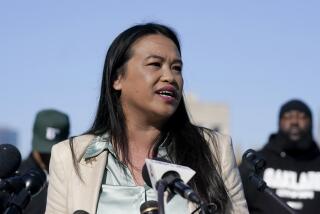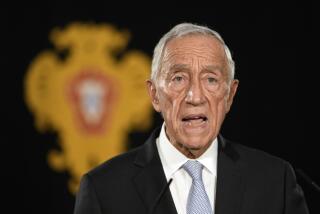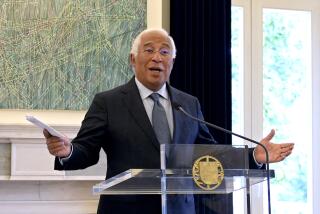3 Aides to Brazil Leader Quit Amid Favoritism Allegations
- Share via
BUENOS AIRES — In a blow to the team spearheading a crucial economic reform package, Brazilian President Fernando Henrique Cardoso reluctantly accepted the resignations Monday of his communications minister and two other top officials.
The resignations resulted from a political uproar over allegations that the minister, Luis Carlos Mendonca de Barros, talked with the others about influencing the $20-billion privatization of Brazil’s national phone conglomerate in July.
Federal authorities are investigating Mendonca; his brother Jose Roberto Mendonca de Barros, who is foreign trade secretary; and Andre Lara Resende, the president of the National Development Bank, on the basis of their phone conversations.
The discussions were illegally taped, presumably by political rivals, and leaked to the media. Investigators also are trying to find out who taped the calls.
It is not clear if the three men broke the law, but the scandal has posed a distraction as Cardoso pushes urgent economic reforms through a fractious Congress. His overhaul of the tax, social security and civil service systems is vital to reversing a financial crisis that could hurt economies across the Americas.
Brazil received a $41-billion bailout package this month after announcing the harsh austerity package.
Cardoso reportedly had wanted to name Luis Mendonca, a rising star, to head a new ministry of production. Jose Mendonca was considered one of the president’s most trusted economic advisors. And Lara had been talked about as a candidate to direct a new economic advisory council.
All three belong to Cardoso’s small Brazilian Social Democratic Party.
The attack on the three Cardoso stalwarts apparently resulted from a nasty power struggle within his multi-party coalition as Cardoso, who won reelection last month, prepares to name a new Cabinet. Already looking toward the end of Cardoso’s second term, political rivals want to prevent the economists from consolidating their power, analysts said.
The men would have been in charge of the program of economic development, production and employment in Cardoso’s second term, said Rosangela Bittar, a political columnist for the Jornal do Brasil newspaper.
Alexandre Barros, a political scientist based in Brasilia, said it was not a surprise that the three resigned. “These people are replaceable; they were important allies, but there are others.”
The case grows out of the landmark sale of the giant phone consortium, Telebras, the biggest privatization in Latin America.
Excerpts of phone conversations leaked to influential magazines this month gave the impression that the communications minister talked to the bank president about favoring a businessman whose firm was interested in bidding for a Telebras subsidiary.
Paula Gobbi in The Times’ Rio de Janeiro Bureau contributed to this report.
More to Read
Sign up for Essential California
The most important California stories and recommendations in your inbox every morning.
You may occasionally receive promotional content from the Los Angeles Times.













